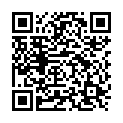|
|
|
| Module code: BSP-13 |
|
|
4U (4 hours per week) |
|
9 |
| Semester: 3 |
| Mandatory course: yes |
Language of instruction:
German |
Assessment:
BSP-13.1 Module work: Part a (50%)(bn)
BSP-13.2 Module work: Part b (50%)(bn)
[updated 20.05.2020]
|
BSP-13 (P322-0033, P322-0034, P322-0035) Social work and early childhood, Bachelor, ASPO 01.10.2019
, semester 3, mandatory course
|
60 class hours (= 45 clock hours) over a 15-week period.
The total student study time is 270 hours (equivalent to 9 ECTS credits).
There are therefore 225 hours available for class preparation and follow-up work and exam preparation.
|
Recommended prerequisites (modules):
None.
|
Recommended as prerequisite for:
BSP-21 Study Project
[updated 09.02.2026]
|
Module coordinator:
Dr. Sebastian Rahn |
Lecturer: Dr. Sebastian Rahn
[updated 26.08.2019]
|
Learning outcomes:
After successfully completing this course, students will:
_ be able to explain the history, theoretical and methodological foundations of qualitative-reconstructive and quantitative research and their relevance for professional practice,
- be able to apply types of research, elementary data collection methods and data evaluation concepts,
- be able to assess traditional studies,
- be able to conceptualize, conduct and evaluate smaller qualitative-empirical as well as quantitative-empirical (explorative) studies on selected issues in a collaborative manner. In doing so, they will be aware of the conditions in their field of investigation and the specific challenges that exist with regard to the challenges collecting data from specific target groups,
_ be able to present their results in writing (and to present them to the public), reflect critically on their cooperative research work (e.g. limitations) and discuss the relevance of their results and the application possibilities.
[updated 20.05.2020]
|
Module content:
BSP-13.1 Tutorial: Quantitative Methods of Data Evaluation:
Continuation of the historical, theoretical and methodological foundations; quality criteria
_ Continuation of traditional and recent exemplary quantitative studies
_ Deeper understanding quantitative data collection methods
_ Deeper understanding of data collection approaches
_ The quantitative research process
-Ethical and data protection aspects in research
BSP-13.2 Tutorial: Qualitative Methods of Data Evaluation:
Continuation of the historical, theoretical and methodological foundations; quality criteria
_ Continuation of traditional and recent exemplary qualitative studies
_ Deeper understanding of data collection methods (in particular, observation, interviews, group discussions)
_ Deeper understanding of data collection approaches (z. B. objective hermeneutics and case reconstruction, grounded theory, documentary method of interpretation)
_ The qualitative research process, case study methodology
_ The qualitative research process 2: Identify problems and cases, Concretize the interest in knowledge and issues incorporating previous knowledge, Define the study field and population, Design development: determine appropriate survey methods and make case selections, Check access to field and addressees; Develop survey tools in detail, Conduct the survey; Documentation/transcription; Analyze material and documentation of results, Case description and analysis
_ Presentation of project reports
_ Ethical and data protection aspects in research
[updated 20.05.2020]
|
Teaching methods/Media:
Literature studies (individual work), exercises on data collection and evaluation methods, field/project work (in groups), research supervision, presentation of results using different types of media
[updated 20.05.2020]
|
Recommended or required reading:
[still undocumented]
|


